Staffordshire Bull Terriers, often affectionately referred to as “Staffies,” are renowned for their muscular build, boundless energy, and affectionate nature. With their strong physique and active lifestyle, ensuring they receive a balanced and nutrient-rich diet is crucial. This guide will provide comprehensive information on the dietary needs of Staffordshire Bull Terriers, helping you determine the ideal amount and type of food for your beloved companion.
1. Caloric Requirements of Staffordshire Bull Terriers
The energy requirements of Staffies can vary based on their age, activity level, and overall health. Here’s a general guideline for caloric intake:
a. Puppies: Growing Staffie pups require approximately 50 to 55 calories per pound of body weight daily, as their growing muscles and bones demand energy.
b. Active Adults: An adult Staffordshire Bull Terrier with a regular activity pattern may need 35 to 40 calories per pound of body weight daily.
c. Sedentary or Senior Dogs: Older or less active Staffies would typically need around 25 to 30 calories per pound of body weight each day.
2. Quality of Dog Food Matters
Selecting high-quality dog food is vital. Opt for brands that list real meat (chicken, beef, fish) as the primary ingredient and avoid foods with excessive fillers such as corn or soy. Additionally, a balanced nutrient profile, rich in essential fatty acids, proteins, and vitamins, is pivotal for their health.
3. Key Factors Influencing Diet
a. Activity Levels: Staffordshire Bull Terriers are naturally vibrant and playful. Those engaging in frequent physical activities or agility training will require more sustenance.
b. Health Concerns: Certain health issues common in Staffies, like hip dysplasia or allergies, can influence dietary choices. Always adapt the diet based on vet recommendations.
c. Life Stages: Dietary requirements differ across life stages. Ensure the food you provide is appropriate for your Staffie’s current age and size.
4. Importance of Weight Monitoring
With their muscular build, it’s essential to ensure Staffies maintain a healthy weight. Regularly monitor their weight and adjust food portions if you notice any sudden increase or decrease.
5. Estimating Monthly Feeding Costs
Using a premium dog food priced at around $2 per pound, which provides roughly 400 calories per cup:
For an adult Staffie weighing about 30 pounds and needing around 1,050 calories daily:
- Daily food requirement = 1,050 calories ÷ 400 calories/cup = 2.625 cups daily.
- Monthly food requirement = 2.625 cups x 30 = 78.75 cups.
- A 30-pound bag generally contains about 120 cups of food, so a Staffie would need less than one bag monthly.
- Monthly cost = 0.66 bags x $60 (assuming $2 per pound) = approximately $40.
This estimate will vary based on the brand, region, and specific dietary preferences.
6. Snacks and Treats
While Staffies undoubtedly love their treats, moderation is crucial. Treats should make up no more than 10% of their daily caloric intake. Additionally, choose healthy treatment options that promote dental health or provide essential nutrients.
7. Staying Hydrated
Water plays a vital role in digestion, temperature regulation, and overall health. Ensure your Staffordshire Bull Terrier always has access to clean and fresh water.
8. Dietary Supplements
Some Staffies might benefit from dietary supplements, especially if they have specific health concerns. Omega fatty acids, glucosamine, and multivitamins can be beneficial. However, always consult a veterinarian before introducing any supplements.
Our 5 Top Foods for Staffordshire Bull Terriers
The diets were selected by our founder Justin Palmer, a certified canine nutrition expert, specifically with Staffordshire Bull Terriers in mind:
| Food | Pros | Cons |
|---|---|---|
|
|
|
|
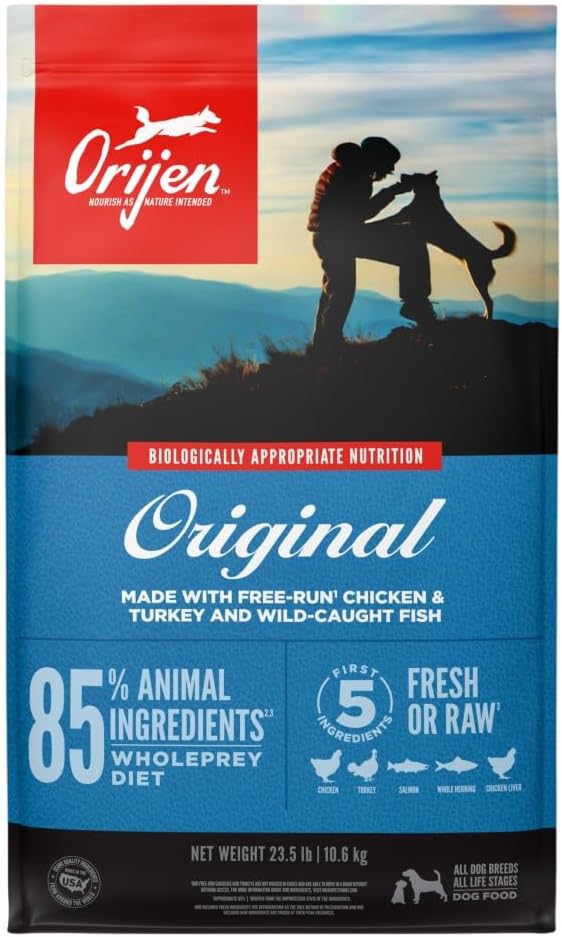
Check Today's Price on: |
|
|
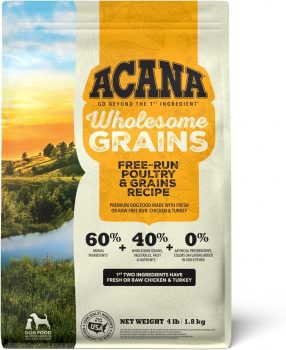
Check Today's Price on: |
|
|
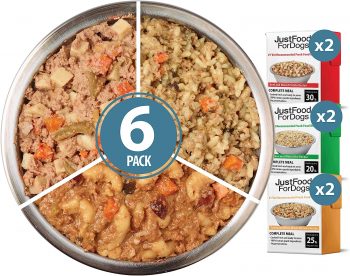
Check Today's Price on: |
|
|
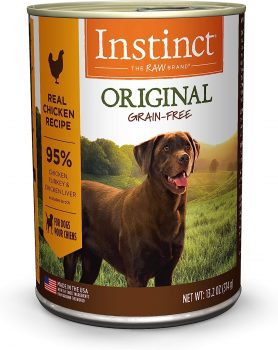
Check Today's Price on: |
|
|
Conclusion
Feeding your Staffordshire Bull Terrier a balanced diet is the cornerstone of ensuring they lead a healthy, active, and long life. By understanding their unique dietary needs and monitoring their health, you can enjoy many joyful years with your affectionate and energetic companion.
Frequently Asked Questions About Feeding a Staffordshire Bull Terrier
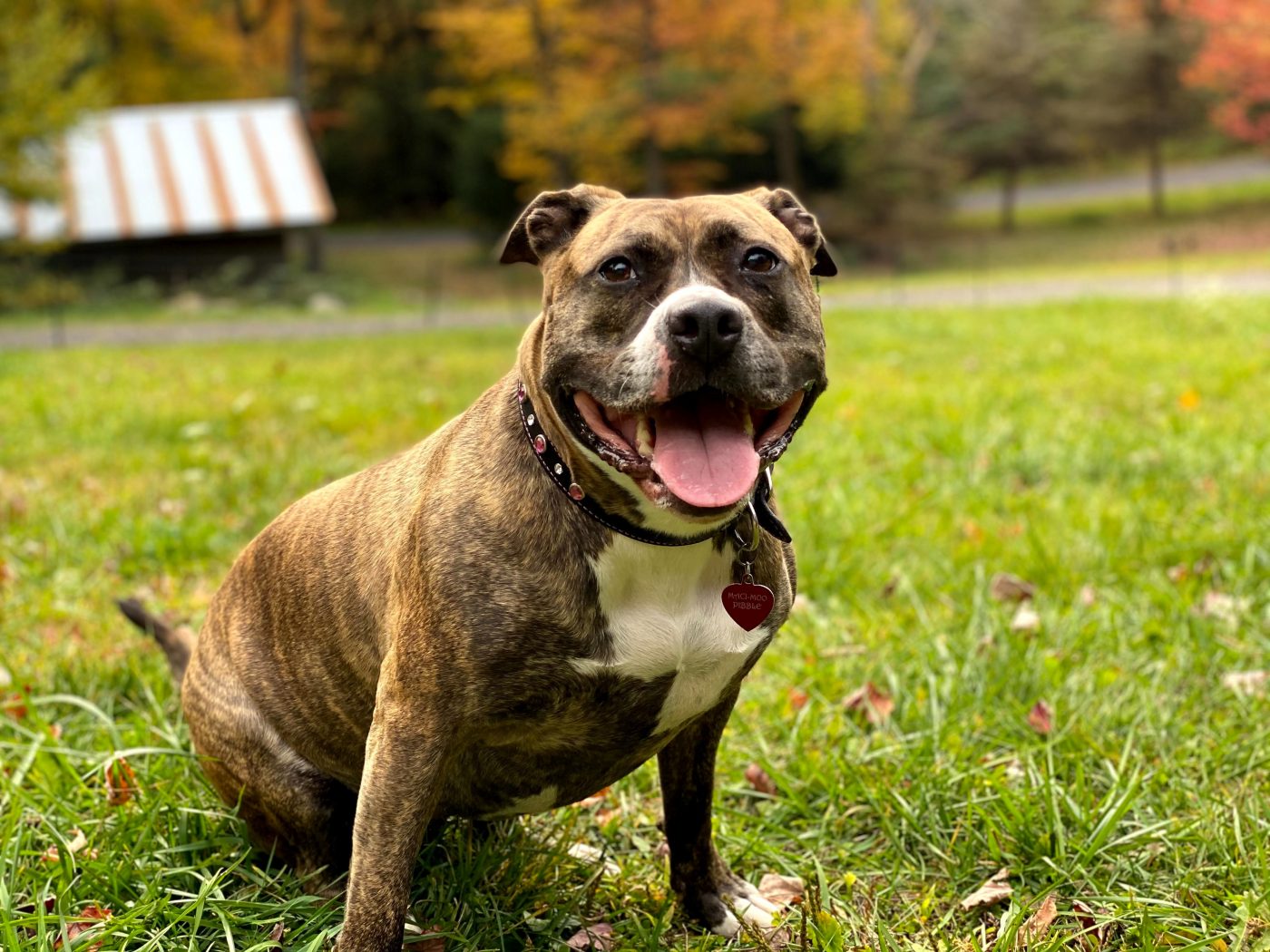
1. How often should I feed my Staffordshire Bull Terrier puppy?
Puppy Staffordshire Bull Terriers typically require feeding 3 to 4 times a day until they reach six months of age. This frequent feeding supports their rapid growth and energy needs. After six months, you can transition them to twice-daily meals.
2. Are there specific food ingredients I should avoid for my Staffie?
Yes, some ingredients can be harmful. Always avoid foods containing chocolate, grapes, raisins, onions, garlic, caffeine, and xylitol. Additionally, steer clear of dog foods with excessive fillers like corn and soy, as these offer little nutritional value.
3. My Staffie seems to be gaining weight. What should I do?
Monitor your dog’s food intake and ensure you’re not overfeeding. Consider transitioning to weight management or lower-calorie dog food. Additionally, increase their exercise regimen and consult with a veterinarian to rule out any underlying health issues.
4. Are grain-free diets recommended for Staffordshire Bull Terriers?
Some Staffies may benefit from a grain-free diet, especially if they have allergies or digestive sensitivities. However, it’s essential to ensure the food is still nutritionally balanced. Always consult your vet before making significant dietary changes.
5. How much water should my Staffie drink daily?
A general guideline is that dogs should drink about an ounce of water per pound of body weight daily. This amount might increase with higher activity levels or warmer climates. Always ensure your Staffie has access to fresh water.
6. Can I give my Staffordshire Bull Terrier raw food or a BARF diet?
Some owners choose a Biologically Appropriate Raw Food (BARF) diet for their Staffies. While this can provide natural nutrients, it’s crucial to ensure the diet is balanced and free from harmful pathogens. Always consult with a vet before transitioning to a raw food diet.
7. Are there any supplements beneficial for Staffies?
Certain supplements like omega fatty acids, glucosamine, and multivitamins can benefit Staffordshire Bull Terriers, especially if they have specific health concerns. Always consult your vet before introducing new supplements to your diet.
8. How do I know if the portion sizes are right for my Staffie?
The best indicators are your dog’s weight, energy levels, and overall health. If your Staffie maintains a healthy weight, seems energetic, and has no digestive issues, the portion size is likely appropriate. Regular vet check-ups can also help assess their dietary needs.
9. Can I feed my Staffordshire Bull Terrier human food?
While some human foods are safe in moderation, it’s essential to ensure they’re non-toxic to dogs. Foods like lean meats, certain vegetables, and rice can be okay. However, always avoid feeding foods like chocolate, grapes, and onions, and it’s best to limit human food to occasional treats.
10. My Staffie seems to have food allergies. What should I do?
If your Staffordshire Bull Terrier shows signs of food allergies (itching, digestive issues, skin problems), consult your vet. They can help identify the allergen and recommend a hypoallergenic diet or specific ingredients to avoid.
 Check Today's Price on:
Check Today's Price on: Toledo, United States.
Toledo, United States.